Best books of 2017
Part one
John Banville
The Once and Future Liberal; There Your Heart Lies; Angel Hill
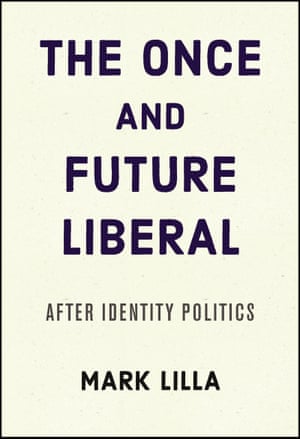
Mark Lilla’s The Once and Future Liberal: After Identity Politics (Harper) has annoyed a great many people in the US, though its message is nothing but common sense: in the age of Trumpery, nothing can be done for vulnerable minorities unless liberals get themselves elected to positions of influence. An urgent and important book by one of the clearest and most inspired political thinkers of the day. There Your Heart Lies by Mary Gordon (Pantheon) takes us back to an earlier time of crisis, the 1930s and the Spanish civil war, and an American woman’s experiences in it. A thoughtful, provocative and beautifully written novel. Michael Longley’s Angel Hill (Cape) is at once elegiac and celebratory, and achingly beautiful. Longley has honed his poetry to the bone, but how the bone does shine.
Nicola Barker
Becoming Myself; All Things Remembered; Wonder Beyond Belief
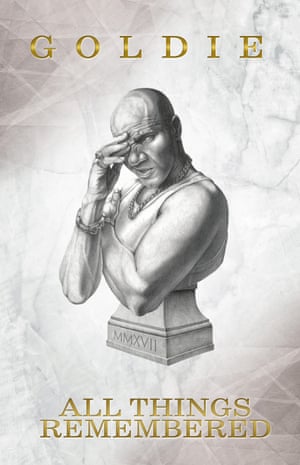
Becoming Myself: A Psychiatrist’s Memoir (Piatkus) by Irvin D Yalom. When Yalom publishes something – anything – I buy it, and he never disappoints. He’s an amazing storyteller, a gorgeous writer, a great, generous, compassionate thinker, and – quite rightly – one of the world’s most influential mental healthcare practitioners. All Things Remembered (Faber) by Goldie. A fabulous, whirling kaleidoscope of music, memory and trauma. Top highlights: when Goldie’s boa constrictor decides to try to eat him after he staggers home from the pub smelling like a kebab; and when his favourite piece of custom-made jewellery is stolen – right from under his nose – by dodgy Russian airport officials. Magical and cautionary. Navid Kermani’s Wonder Beyond Belief: On Christianity (Polity). Iranian-born, German-bred, Muslim novelist/intellectual Kermani travels the globe looking at significant (and not so significant) Christian artworks. This truly is one of the best books I’ve read in years: funny, outrageous, touching, intimate, glorious.
William Boyd
Insomniac Diaries; David Bowie: A Life; Fasting and Feasting
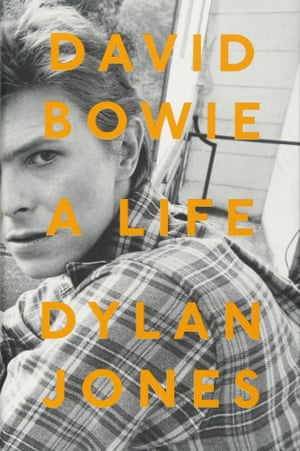
As a Vladimir Nabokov completist, I could not resist Insomniac Diaries: Experiments with Time (ed. Gennady Barabtarlo, Princeton). Over a period of a few weeks in 1964 Nabokov wrote down his dreams, nightly. Here they are – not random narcoleptic scribblings but direct pellucid access to the great man’s unconscious. Utterly fascinating. Dylan Jones made absolutely the right decision to frame his superb life of David Bowie as a multi-voiced oral biography. David Bowie: A Life (Preface) suits the shape-shifting, beguiling, enigmatic complexities of its subject perfectly. It’s hard to imagine anything that will do Bowie better justice. Patience Gray (1917-2005) is the great original British cook and food writer. Her rackety, reclusive life is brilliantly realised in Fasting and Feasting by Adam Federman (Chelsea Green). This book will establish Gray as a wonderfully eccentric and visionary one-off. She is the British MFK Fisher – there can be no higher praise in literary/culinary circles.
Gordon Brown
Lincoln in the Bardo; Autumn; A Legacy of Spies; Dare Not Linger
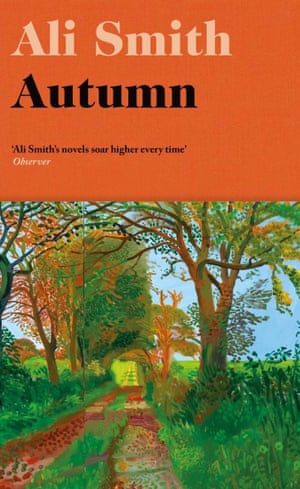
Spending much of the year writing a book of my own has left me with a deeper and more personal understanding – and sympathy for – the challenges confronting authors. In fiction, I was impressed but challenged by the originality and scope of George Saunders’s Booker-winning story of grief and empathy, Lincoln in the Bardo (Bloomsbury) and enjoyed Ali Smith’s Autumn (Hamish Hamilton) (and now look forward to her Winter), but I would opt for John le Carré’s A Legacy of Spies (Viking), not least for Smiley’s dramatic and surprising closing revelation of his reason for a life-time of spying – and lying. In autobiography, Nelson Mandela’s Dare Not Linger (with Mandla Langa, Macmillan) cannot rival Long Walk to Freedom – he died with it unfinished – but it reveals the struggles, setbacks and frustrations that to this very day thwart the progress of Africa. And Branko Milanović’s much underestimated Global Inequality: A New Approach for the Age of Globalization (Harvard), now being published in many languages, tells us more than any other recent book about the state of the world we live in and, at a time when hope is so urgently needed, offers us thought-provoking insights into the world we could become.
Roddy Doyle
To Die in Spring; Anything is Possible; Reservoir 13
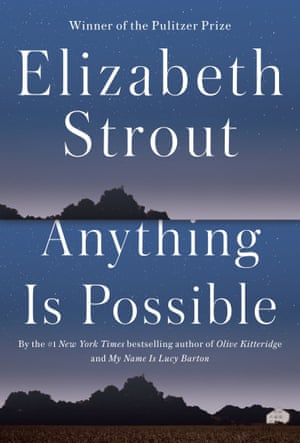
The war is almost over, the Russians are getting nearer and two young men join the SS. A bad career move, but To Die in Spring is a wonderful, precise, very moving novel by German author Ralf Rothmann (Picador, translated by Shaun Whiteside). Anything Is Possible (Viking) is predictably great because it’s written by Elizabeth Strout, and brilliantly unpredictable – because it’s written by Elizabeth Strout. I like most of the books I read but, now and again, I read one I wish I’d written myself. This year it’s Reservoir 13 (4th Estate), by Jon McGregor. Its structure, pace, detail, tone, humanity – it’s a quiet masterpiece.
Jennifer Egan
Bystanders; Lincoln in the Bardo; Swing Time
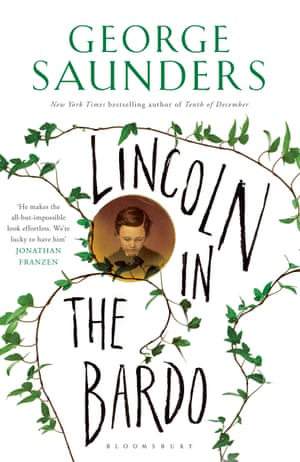
Short story and thriller tend to be incompatible genres, but not in the hands of Tara Laskowski. Bystanders (Santa Fe Writers Project) is a spooky, quirky collection reminiscent of Roald Dahl: a mash-up of Hitchcockian suspense and campfire-tale chills. In Lincoln in the Bardo George Saunders has somehow managed to write a historical novel that hews deeply and movingly to archival fact while also being an all-out crazy spectacle of his own invention. Abraham Lincoln’s visit to his young son’s grave becomes the locus of a whirl of dialogue from around the cemetery: a puzzling, hilarious vortex of invention that only Saunders could pull off. The novel made me feel intimate with Lincoln, and that particular moment of history, in a way I never had before. Female friendship has become a literary focus in recent years, and Zadie Smith’s take on the subject in Swing Time (Hamish Hamilton) is my favourite. Tracing the evolution of a childhood friendship into adulthood, she bracingly portrays the compromises and bargains we all eventually make. Smith’s idiosyncratic gaze and keen, supple prose transform and elevate everything she touches.
 |
| Anne Enright |
Anne Enright
After Kathy Acker; Bluets; Midwinter Break
It used to be Plath, but now some part of every girl writer will want to be like Kathy Acker, especially those who are interested in pain; whether pain as kink or pain as artistic production. Her life was a hot mess, and these pages capture the heat of it. After Kathy Acker by Chris Kraus (Allen Lane) is hectic, less than objective, very much alive. A cooler, more serene take on the subject is to be found in Bluets by Maggie Nelson (Jonathan Cape), recently published in the UK for the first time. This discussion of the colour blue is a gorgeous read, almost religious in the way it defaults to the beautiful and the sublime. Addiction, religion and beauty are also themes in Midwinter Break by Bernard MacLaverty (Jonathan Cape). This reads like a book about a long-married, monogamous couple on a city break in Amsterdam. Actually this is a book about a long-married, monogamous couple on a city break in Amsterdam. What has that got to do with the sublime? As it turns out, quite a lot.
Bernardine Evaristo
When We Speak of Nothing; Kingdom of Gravity; Why I’m No Longer Talking to White People About Race
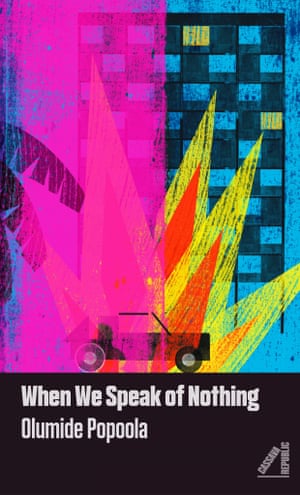
When We Speak of Nothing by Olumide Popoola (Cassava Republic) is a linguistically inventive and deliciously original debut novel about a young, transgender protagonist who travels to Nigeria to find his father. Kingdom of Gravity by Nick Makoha (Peepal Tree) is an electrifying debut poetry collection that skilfully resurrects the terror of Idi Amin’s dictatorship from this British writer who fled Uganda as a child. Why I’m No Longer Talking to White People About Race by Reni Eddo-Lodge (Bloomsbury Circus). This political, accessible and uncompromising book has got people talking about race and racism in Britain.
Matt Haig
The Best We Could Do; La Belle Sauvage; The Secret Life of Cows
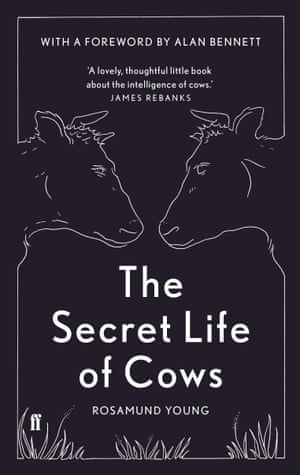
I have just finished reading The Best We Could Do (Abrams), a hauntingly beautiful illustrated memoir by Thi Bui. It tells the story of Bui’s Vietnamese family fleeing their home country after the fall of South Vietnam and arriving in America. It’s a mesmerising tale, given extra power by the art on every page. Philip Pullman’s La Belle Sauvage (David Fickling) was a total, thrilling, immersive, Homeric delight – not just a return to a world, but an enriching of one. It is a triumph of imagination, and I can’t wait for the rest of the trilogy. I also loved Rosamund Young’s The Secret Life of Cows (Faber). It’s a plea for us to appreciate the complex inner lives of our inquisitive, loving, bovine friends, whom we arguably exploit more than any other creature on Earth – from what we wear on our feet, via our Sunday roast, to what we pour on our granola. It also makes the great point that we should not judge animal intelligence in relation to our own.
Philip Hensher
The 7th Function of Language; The House of Government; The Sparsholt Affair
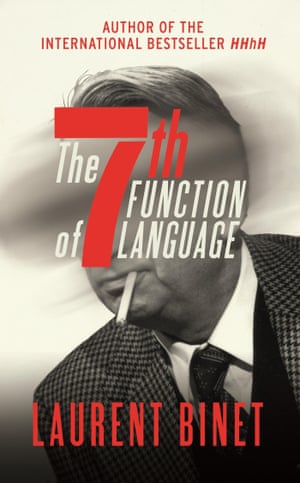
Laurent Binet’s The 7th Function of Language (Harvill Secker, translated by Sam Taylor) was the most outrageously entertaining novel of the year, a defamatory fantasy about the supposed secret lives of eminent post-structuralists. A joy. Yuri Slezkine’s The House of Government (Princeton) is a humane masterpiece, rendering the colossal scale of Stalin’s brutality not in numbers but in individual lives, and a single Moscow apartment building. There are pages I don’t think any reader will ever forget. Alan Hollinghurst’s The Sparsholt Affair (Picador) is startling, radical, embedded in tradition but entirely new in final effect – the novel that other novelists were all talking about this year.












No comments:
Post a Comment